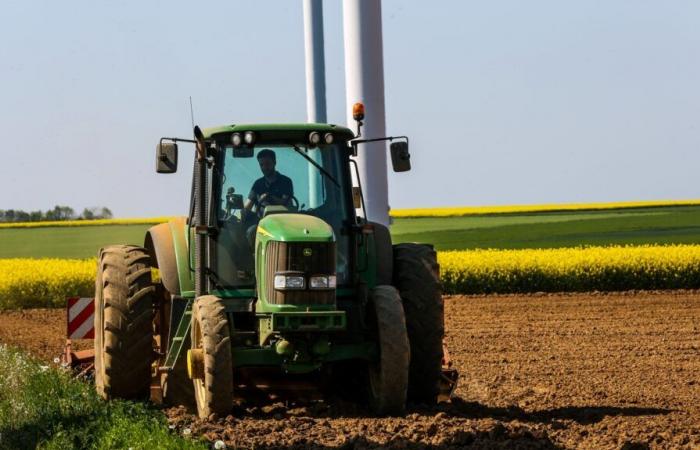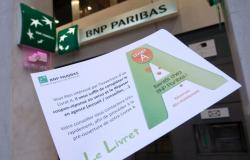As of this Wednesday, January 15, 2025, 28,906 voters in Deux-Sèvres are called to the polls for the elections to the interdepartmental chamber of agriculture. Three unions are putting forward candidates on the Deux-Sèvres side: the FNSEA79 and the JA79 together, the Peasant Confederation 79 and the Rural Coordination 79.
The votes will be distributed between several colleges, the most coveted being that of operating managers which, alone, holds more than the majority of seats (18 out of 34 in each department). And the list that comes first immediately wins half (9), the rest being shared between the three lists proportionally.
The FNSEA has always been in the majority in Deux-Sèvres. In 2019, she won 52.72% of the votes, or 14 seats in this first college alone. The other two had only obtained two seats with a slight lead for the Peasant Confederation (23.83%) over the Rural Coordination (23.45%).
Six years later, what will it be? The anger of the farmers constitutes at least one common point between all the candidate unions.
“Victory” hoped for by the FNSEA79 and the JA79
The FNSEA79 aims “victory obviously and continuity”, according to Denis Mousseau, its president and head of the joint list with the JA79. Will the union anchored in Deux-Sèvres pay for its mobilizations raised on promises that are still not followed through on? “The state is in instability today but we are not responsible for it. Unfortunately, the dissolution and censorship caused a delay, but that is not the fault of the FNSEA! » he pleads. Refuting accusations of only representing “big” operators: “We defend all farmers. There are no big or small ones. There is plural agriculture. On my list, I have market gardeners, cereal growers, goat and sheep breeders… We are proud of this diversity. Farmers in the department are entitled to a decent income. Is this what we call agribusiness? » The union announces “1,700 members”a number «in constant progression» more “in relation to the agricultural demographic evolution of the department” which is in decline.
Objective: “30% of the votes” for Coordination
In their more muscular style, do the yellow hats of Rural Coordination (CR), the first and most mobilized at the start of 2024, hope to take advantage of this visibility? “It was the year when we made the most media noise; it motivated the troops. We were starting to run out of steam and now we're bringing back young people because they see that we're moving more than the others.” says Philippe Germond, president of CR79 and head of the list. But its ambitions remain modest to the extent that the union is barely visible in the department. “We hadn’t moved too much. The objective is to get at least 30% of the votes, to show that we are there. » He tempers the accusations about the modes of action: “We may be extreme but we've never broken anything. We do impressive, scary things. But we have respect for property. These highlights are to show that we are there, to have a place in the media. » As for the RN label that sticks to the union, he denies it: “I am not in the RN and I have contributors from all sides, some from the left, even in the office. If others vote RN, it is their freedom; the agricultural union has nothing to do with it. » The CR79 displays “200 members”either “around fifty more in 2024”.
“We want respectful agriculture”
To the Peasant Confederation 79, “we hope to progress and stay second” declares Benoît Jaunet, head of the list. The union spokesperson in Deux-Sèvres denigrates the “catastrophic results of the FNSEA”. As for the CR, “she tries to ride on the anger of the agricultural world but she doesn’t make any proposals, it’s a shame”. The Peasant Confederation wants “defend an agriculture of sharing and when we share, we are always smaller than when we keep everything for ourselves. We must share water, wealth… We are the only ones to defend agro-environmental measures. We want agriculture that respects people, the environment and consumers. We are fighting for income. When we are recognized, we can adapt to do another type of agriculture. But to make this change, we need support. We must put in the means! » The union counts “200 members”a name “which increases every year”.
The big unknown in a tense context remains participation, which is usually low. It was 26.2% in 2019 for all colleges combined, however higher in the college of operating managers (40.3%). Will the anger of farmers encourage them to vote or to lose interest? Response when results are announced between February 6 and 8.
Elections: instructions for use
> Farmers are called to the polls from this Wednesday, January 15, 2025 to elect their representatives in the chambers of agriculture.
> Votes are open until January 31, either directly online or by post.
> In Deux-Sèvres, these will be the first elections since the Chamber of Agriculture became interdepartmental, after its merger with that of Charente-Maritime in 2022. There is now only one body which employs 175 shared employees with a budget of 17 million euros. A particularity because there are only “five interdepartmental chambers in France” according to the director, Pol Lefebvre.
> For the elections, no changes at first. Each department will retain its number of elected officials, i.e. 34 for Deux-Sèvres and the same for Charente-Maritime, making up a plenary assembly of 68 members.
> The novelty will take place at the end of February during the installation of the assembly and the vote of the president who will for the first time be directly elected by this large assembly. The current president, Jean-Marc Renaudeau, is not running for re-election. The principle is that the president and vice-president of the chamber are from each department and each is also the “territorial president” of his department.





